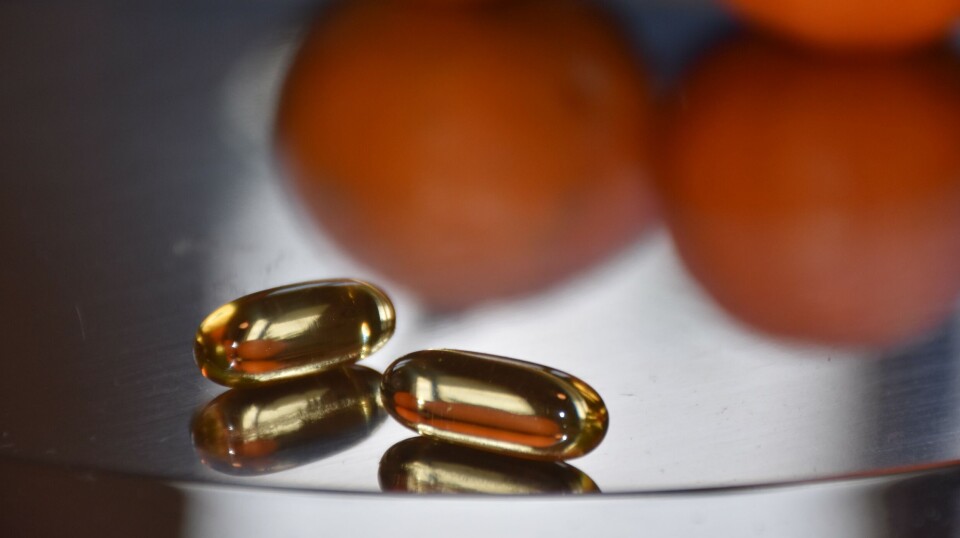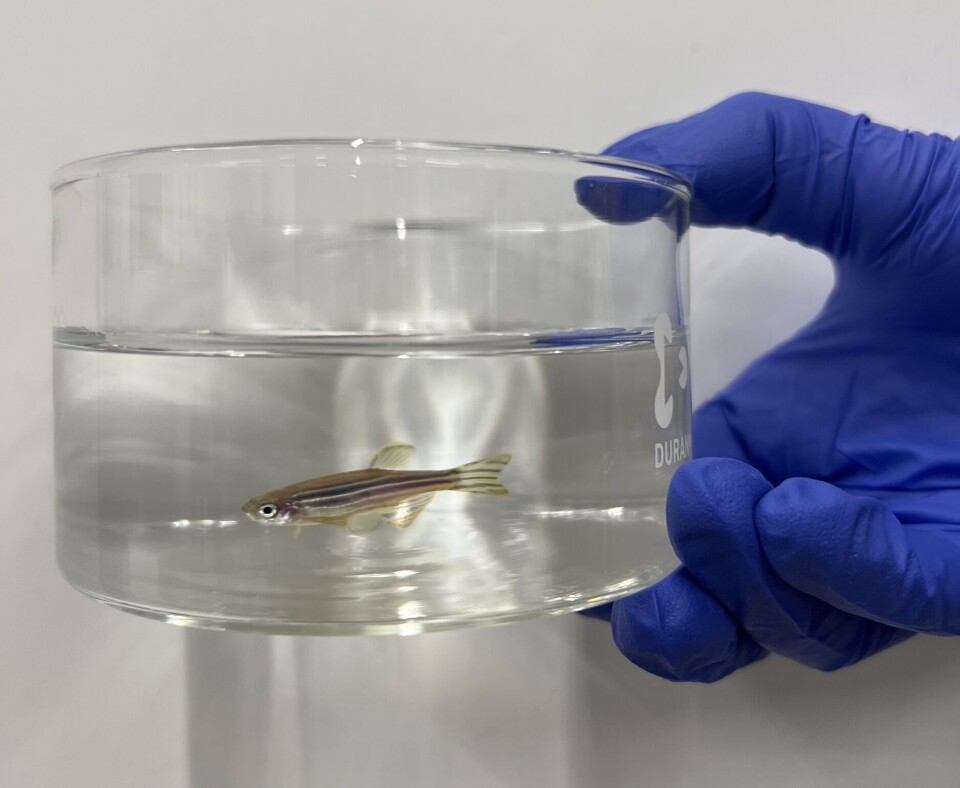THIS CONTENT IS BROUGHT TO YOU BY Nord University - read more

Oil from a microbe may become important in the fight against cardiovascular diseases
Microbe-derived oils reduce the level of harmful cholesterol and lipids in the blood. So far, they have only been tested on zebrafish, but new research paves the way for new methods to study the health benefits of marine oils.
Cardiovascular diseases are the number one cause of death globally. The underlying cause is often the thickening or hardening of arteries (atherosclerosis).
The culprit, the ‘bad’ LDL cholesterol, increases in our blood when we consume unhealthy diets rich in fats. Researchers at Nord University have now examined how oil from a specific microbe can help the body handle these dangerous lipids.
“At Nord University, we work with bioactive components from microorganisms, where we also look for alternatives to fish oils. We aim to study how such products can be used to improve people's health," researcher Adnan Gora says.

"If the whole world is to meet its omega-3 oil needs from fish oil, there will soon be a significant shortage of such oils. Therefore, we need alternative sources," he says.
The researchers at Nord University have therefore looked at how oils from the marine fungus-like microorganism Schizochytrium affect the blood, liver, and intestines of zebrafish.
Schizochytrium stands out as being exceptionally rich in DHA, one of the most important omega-3 fatty acids.
Simulate signs of cardiovascular diseases
To study the effect of microbial oil, the researchers chose to use the small aquarium fish zebrafish.
Gora explains that zebrafish have a range of advantages as experimental animals in these types of studies. They are small, and as young fish, they are transparent.
“One can simulate in zebrafish what are early signs of cardiovascular diseases in humans. It is also likely that medications effective in zebrafish could prevent diseases in humans,” Gora says.
In this study, researchers were able to profile hundreds of different lipids in the blood of zebrafish to see how microbial oil affects the composition of these, for the first time.
Full reduction
Gora and colleagues fed the fish a diet high in cholesterol, where one group also received a supplement of oil from Schizochytrium in their food. The experiments showed that the supplementation of microbial oil mitigated the adverse effects of the diet with too much cholesterol.
“In our study, we found that microbial oil lowered the level of both cholesterol and triglycerides in the blood. The oil also changed the composition of lipids in the blood similarly to what is seen when using fish oils,” Gora explains.
Triglycerides are lipids known to increase the risk of cardiovascular diseases if there is too much of them in the blood.

Research conducted on humans suggests that it is not enough to increase the proportion of HDL cholesterol (the ‘good’ cholesterol) in the blood if the level of triglycerides is not simultaneously reduced.
“Some studies show that the ideal scenario is to achieve a simultaneous increase in HDL and a reduction in triglycerides in the blood. Our study with oil from Schizochytrium simulated just such a condition,” Gora says.
The experiments further showed that the level of LDL cholesterol in fish that received microbial oil in addition to a high-cholesterol diet was reduced all the way down to the same level as in fish that had not received a high-cholesterol diet.
“Generally, this is something that is difficult to achieve in such experiments. It shows the capacity of microbial oil to influence the molecular processes in the fish,” he says.
Turning genes off and on
To look more closely at how microbial oil affects cholesterol in the body, the researchers chose to look at how the genes in zebrafish reacted to the different diets.
“What we saw was that fish that had been fed a diet with very high levels of cholesterol reacted by turning off the activity of a number of genes,” Gora says.
The genes that were turned off by high cholesterol levels in food were genes that normally assist in the body's own cholesterol production.
“Cholesterol synthesis only occurs when there is a shortage of cholesterol. So, when the body detects that there is a surplus, it stops producing it. When we added microbial oil to the diet, these genes were activated again. This indicates that the effect of high cholesterol was no longer present,” Gora says.
Moreover, evidence strongly suggests that genes contributing to the production of ‘good’ cholesterol – HDL cholesterol – are activated when the fish are given microbial oil in their food.

The researchers also looked at how the liver reacted to the different diets. They saw that fish on a high-cholesterol diet had significantly more so-called vacuoles in the liver. These are small bubbles in the cells that mostly contain fat. Fish that had also received microbial oil had fewer such vacuoles. The researchers could also see differences in the size of the vacuoles in the different groups.
A well-suited experimental animal
Gora believes the use of zebrafish in such studies will be invaluable to get to the bottom of how cholesterol is regulated and thus reduce the extent of cardiovascular diseases.
“Zebrafish prove to be a good model organism. In this study, we have shown that the intestine plays a central role in regulating cholesterol, specifically the middle part of the intestinal tract. Here, the genes in the intestine function as switches to regulate cholesterol in the blood,” Gora says.
Zebrafish is also used as a model organism in other research projects at Nord University.
“We use zebrafish to study the potential of compounds extracted from macroalgae, microalgae, and other microbes for biomedical purposes. This includes their possible use as functional supplements,” Kiron Viswanath says.
He is head of the Algal and Microbial Biotechnology group, who refers to the on-going EU project Algae4IBD.
Here, the researchers focus on inflammatory bowel disease, which includes Crohn’s disease and ulcerative colitis.
Reference:
Gora et al. Protective mechanisms of a microbial oil against hypercholesterolemia: evidence from a zebrafish model, Frontiers in Nutrition, vol. 10, 2023. DOI: 10.3389/fnut.2023.1161119

This content is paid for and presented by Nord University
This content is created by Nord University's communication staff, who use this platform to communicate science and share results from research with the public. Nord University is one of more than 80 owners of ScienceNorway.no. Read more here.
More content from Nord University:
-
Kateryna's university has been bombed three times – but she's still teaching
-
5 things you didn't know about smart cities in the Arctic
-
AI sparked an idea that could improve road safety in Norway
-
These algae have been adapting for hundreds of millions of years
-
Could traces of bacteria in water combat salmon disease?
-
Bladderwrack in animal feed has the potential to reduce methane emissions




































